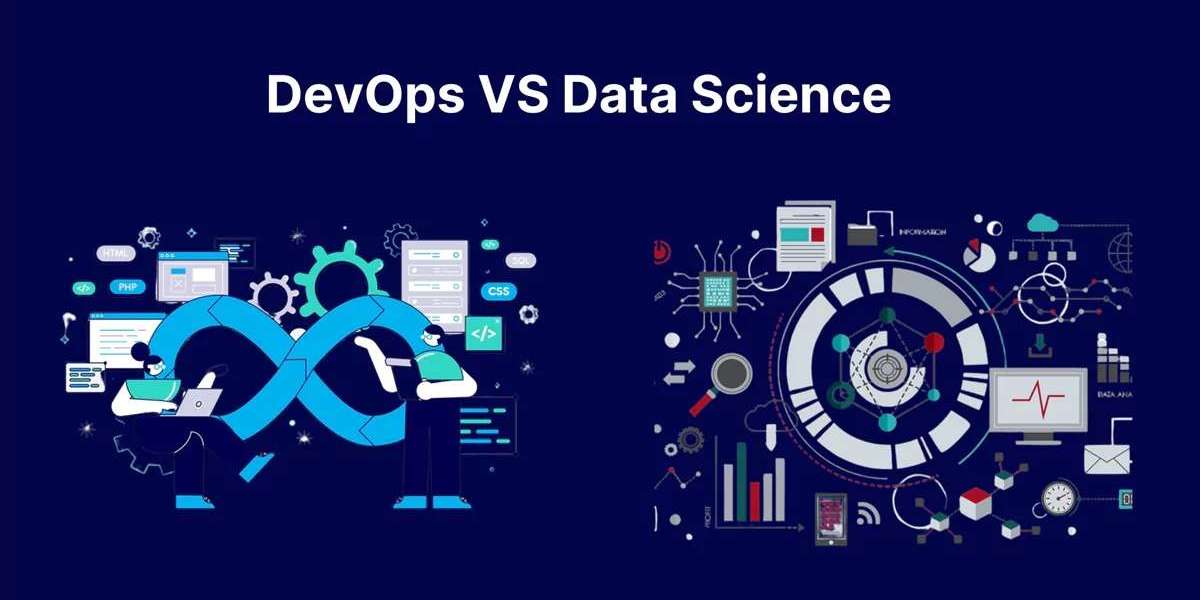In the fast-paced and ever-evolving world of technology, two career paths have emerged as front-runners for tech enthusiasts and professionals alike: DevOps and Data Science. Both fields are at the forefront of digital transformation, shaping the way companies build, deploy, and analyze data to gain a competitive edge. While both DevOps and Data Science offer promising career opportunities, they cater to different skill sets, responsibilities, and career aspirations. Understanding the key differences between these two fields will help you decide which path aligns better with your career goals.
What is DevOps?
DevOps, short for "Development Operations," is a methodology that focuses on bridging the gap between software development and IT operations. It’s all about fostering collaboration between developers and operations teams to ensure that software is built, tested, and deployed faster and more efficiently. The primary goal of DevOps is to enhance the speed and quality of software delivery by streamlining workflows, automating repetitive tasks, and improving system reliability.
In a typical DevOps environment, professionals work on continuous integration and continuous deployment (CI/CD) pipelines, using tools like Jenkins, Docker, and Kubernetes to automate processes. DevOps emphasizes automation, monitoring, and managing infrastructure through code, allowing teams to release software updates more frequently without compromising quality.
DevOps professionals are responsible for managing the entire software development lifecycle—from coding and testing to deployment and maintenance. They focus on optimizing workflows, ensuring system stability, and creating scalable infrastructures that support faster and more reliable software releases.
What is Data Science?
Data Science, on the other hand, is a field that revolves around extracting actionable insights from large datasets. It combines statistical analysis, machine learning, data mining, and programming to solve complex problems and make data-driven decisions. Data scientists use various techniques to analyze structured and unstructured data, identify patterns, and build predictive models that help businesses make informed decisions.
Data Science is highly interdisciplinary, requiring knowledge in programming languages like Python and R, as well as expertise in statistical analysis, machine learning algorithms, and data visualization tools. The role of a data scientist goes beyond simply collecting and analyzing data—they must also communicate their findings in a way that stakeholders can understand and act upon.
Data scientists work across various industries, including finance, healthcare, retail, and marketing, to solve business problems, optimize operations, and predict future trends. Whether it's helping a company optimize its supply chain or improving customer targeting in marketing campaigns, Data Science plays a crucial role in decision-making processes.
Key Differences Between DevOps and Data Science
While both DevOps vs Data Science are critical to modern businesses, they differ significantly in their focus and skill sets.
Focus on Software vs. Data
DevOps primarily revolves around optimizing the software development lifecycle. It emphasizes automation, system infrastructure, and efficient deployment. Data Science, however, focuses on analyzing data to extract insights, identify trends, and make predictions. While DevOps professionals are responsible for ensuring smooth software operations, data scientists are tasked with deriving value from data.Skill Sets
DevOps professionals need a strong understanding of automation tools, cloud platforms, system administration, and coding for infrastructure management. They are often skilled in scripting languages such as Bash, Python, or PowerShell, and they work with tools like Ansible, Terraform, and Docker.
In contrast, data scientists need a deep understanding of statistics, mathematics, machine learning algorithms, and programming languages like Python and R. They also need to be proficient in data visualization tools like Tableau or Power BI and database management systems like SQL.Tools and Technologies
DevOps professionals use tools like Jenkins for CI/CD, Docker and Kubernetes for container orchestration, and cloud services like AWS, Azure, and Google Cloud for infrastructure management.
Data scientists work with libraries like TensorFlow and Scikit-learn for machine learning, Pandas and NumPy for data manipulation, and Matplotlib or Seaborn for data visualization. They often use cloud-based platforms like AWS SageMaker for building machine learning models.Work Environment
DevOps professionals often collaborate with development teams to streamline the software release process, while data scientists typically work closely with business stakeholders to solve business-related problems using data. DevOps teams are focused on maintaining system reliability, scalability, and security, whereas data scientists focus on analyzing past data to predict future outcomes and recommend business strategies.
DevOps vs Data Science: Which is Better?
The question of DevOps vs Data Science which is better depends largely on your career goals, interests, and strengths. If you enjoy working with automation tools, system architecture, and software deployment, DevOps may be the better choice for you. DevOps professionals are in high demand, especially in companies adopting cloud technologies and CI/CD pipelines. The field offers continuous learning opportunities as new tools and technologies emerge.
On the other hand, if you're passionate about data analysis, machine learning, and predictive modeling, Data Science could be the more rewarding path. The demand for data scientists continues to grow as companies increasingly rely on data-driven decisions. Data Science offers opportunities to work across various industries, tackling a wide range of problems and improving business outcomes with actionable insights.
DevOps vs Data Science Salary Comparison
One of the key factors many professionals consider when choosing a career path is salary. When it comes to DevOps vs Data Science salary, both fields offer competitive pay, but Data Science tends to have a slight edge.
According to various reports, the average salary for a DevOps engineer ranges from $95,000 to $130,000 annually, depending on experience, location, and company size. Data scientists, on the other hand, typically earn between $110,000 and $150,000 per year, with senior-level data scientists often earning even more due to the specialized nature of their work.
The slightly higher salary in Data Science can be attributed to the increasing demand for data-driven decision-making in industries like healthcare, finance, and marketing, where predictive analytics and machine learning models are becoming integral to operations.
Conclusion
Both DevOps and Data Science offer exciting and rewarding career opportunities. If you're someone who thrives in system management, automation, and improving software processes, DevOps may be the right fit. However, if you have a passion for working with data, uncovering trends, and making predictions, Data Science could be the ideal path for you. Either way, both fields are essential to modern businesses, offering ample opportunities for growth and competitive salaries. The choice between the two ultimately depends on your interests and career aspirations.



